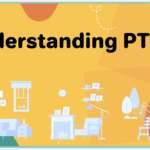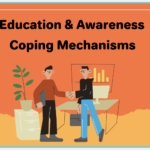Post-Traumatic Stress Disorder (PTSD) among military veterans has garnered significant attention in recent research, leading to crucial advancements in understanding its multifaceted nature. Recent studies have highlighted the interplay of biological, psychological, and social factors contributing to the disorder, thereby informing treatment approaches. One critical area of focus has been neurobiological alterations in veterans with PTSD.
Post-Traumatic Stress Disorder (PTSD) is a chronic condition that may develop following exposure to traumatic events, particularly in military contexts. Within the UK, military veterans are significantly affected by PTSD, a condition that severely impacts mental health and overall quality of life. In a study published by the NHS, it was found that approximately 6-7% of veterans are diagnosed with PTSD at some stage after leaving the military, a prevalence notably higher than the general population.
The experiences that UK military veterans encounter during their service—such as combat situations, witnessing death or injury, and experiencing life-threatening events—can contribute to the onset of PTSD. Veterans often face unique challenges in coping with these traumatic experiences, as they may feel isolated, misunderstood, or reluctant to seek help due to stigma associated with mental health issues. Furthermore, the transition to civilian life can exacerbate feelings of alienation or underemployment, making PTSD symptoms even more pronounced.
Many veterans engage in maladaptive coping strategies, such as substance abuse or emotional withdrawal, as a means of self-soothing. This not only complicates their mental health but also creates barriers to seeking effective treatment. When left unaddressed, PTSD can lead to a catastrophic decline in physical health, relationships, and social functioning. Recognizing the intricacies of PTSD in UK veterans is essential for implementing preventive measures and effective interventions.
With emerging research focused on PTSD treatment, it is vital to understand the context surrounding this disorder among military veterans in the UK. By examining their unique challenges, we can appreciate the importance of addressing PTSD and fostering environments that promote recovery and resilience.
Understanding PTSD: Causes and Symptoms
Post-Traumatic Stress Disorder (PTSD) is a mental health condition that can manifest in individuals who have experienced or witnessed traumatic events. For military veterans, the roots of PTSD often lie in the unique and intense experiences encountered during combat and military service. These intense scenarios, characterized by life-threatening situations, loss of fellow soldiers, and exposure to violence, can create an environment conducive to the development of this debilitating disorder.
One significant cause of PTSD in veterans is the phenomena of combat exposure. Such experiences can lead to an overwhelming sense of fear, helplessness, or horror, which are crucial components in the onset of PTSD. Additionally, factors such as prolonged deployments, combat-related injuries, and witnessing atrocities can further aggravate emotional responses, contributing to the disorder. Military culture, which often discourages vulnerability, may also prevent individuals from seeking help, leading to the exacerbation of symptoms and psychological distress over time.
The symptoms of PTSD can vary widely, but commonly include intrusive thoughts, flashbacks, and nightmares related to the traumatic event. Veterans might also experience emotional numbness, difficulty in trusting others, and increased irritability. As a result, relationships with family and friends may suffer. Additionally, physical symptoms such as insomnia, anxiety, and hypervigilance further complicate the lives of veterans suffering from this condition.
Proper diagnosis and understanding of PTSD are vital for effective treatment. Acknowledging the distinct causes and symptoms associated with this disorder allows healthcare professionals to tailor interventions that address the specific experiences of military veterans. Thus, fostering a supportive environment that encourages open discussions about mental health can be instrumental in facilitating recovery for those affected by PTSD.
Recent Advances in PTSD Research
Post-Traumatic Stress Disorder (PTSD) among military veterans has garnered significant attention in recent research, leading to crucial advancements in understanding its multifaceted nature. Recent studies have highlighted the interplay of biological, psychological, and social factors contributing to the disorder, thereby informing treatment approaches. One critical area of focus has been neurobiological alterations in veterans with PTSD. Research indicates that changes in brain structure, particularly in the amygdala and prefrontal cortex, may underlie the heightened emotional responses and decreased cognitive control often observed in individuals suffering from PTSD. These insights are paving the way for targeted pharmacological interventions that address the neurobiological aspects of the disorder.
Moreover, psychological factors have been a substantial part of recent findings, emphasizing the role of cognitive processing and coping mechanisms in the development and persistence of PTSD. Cognitive Behavioral Therapy (CBT) has emerged as a leading therapeutic modality, with studies demonstrating its effectiveness in reshaping negative thought patterns associated with traumatic experiences. Variations of CBT, such as Prolonged Exposure Therapy and Cognitive Processing Therapy, have also shown promising results, enhancing coping strategies and reducing symptoms in veterans.
Social factors cannot be overlooked. Research indicates that support networks, including friends, family, and fellow veterans, play a vital role in recovery, demonstrating the importance of social integration and community support. Programs designed to enhance peer support have been beneficial, as they foster a sense of belonging and understanding among veterans facing similar challenges. Overall, these advancements in PTSD research not only provide a deeper understanding of the disorder but also carve a path toward more effective treatment strategies tailored for military veterans.
Effective Therapeutic Interventions
Post-Traumatic Stress Disorder (PTSD) is a significant concern among military veterans, necessitating effective therapeutic interventions tailored to their unique experiences. Various therapeutic approaches have been developed and tested, with particular attention being paid to Cognitive Behavioral Therapy (CBT), Eye Movement Desensitization and Reprocessing (EMDR), and mindfulness practices, all of which have demonstrated considerable promise in alleviating PTSD symptoms.
Cognitive Behavioral Therapy (CBT) is a widely recognized form of psychotherapy that helps individuals identify and change negative thought patterns that contribute to their distress. For veterans suffering from PTSD, CBT focuses on reframing traumatic memories and thoughts, thereby fostering healthier coping mechanisms. Research indicates that CBT can significantly reduce the severity of symptoms, including anxiety and flashbacks, making it an effective intervention for those who have experienced combat-related trauma.
Another noteworthy approach is Eye Movement Desensitization and Reprocessing (EMDR). This method involves processing distressing memories by integrating them with bilateral sensory input, such as guided eye movements. Studies have shown that EMDR can lead to rapid improvements in PTSD symptomatology, allowing veterans to process traumatic experiences more effectively. Its unique structure and techniques cater specifically to the needs of veterans, offering a promising avenue for recovery.
Mindfulness practices have also gained traction in recent years, emphasizing the importance of present-moment awareness. The application of mindfulness techniques, such as meditation and breathing exercises, helps veterans ground themselves and detach from traumatic memories. Evidence suggests that engaging in mindfulness can enhance emotional regulation and reduce overall stress levels, providing valuable support for veterans managing PTSD.
Collectively, these interventions represent a multifaceted approach to managing PTSD among military veterans. Their integration into treatment protocols highlights an ongoing commitment to providing veterans with the necessary tools for recovery and improved mental health.
The Role of Medication in PTSD Treatment
Post-Traumatic Stress Disorder (PTSD) is a mental health condition that can significantly impact the lives of military veterans. One of the primary approaches to treatment involves the use of medication. Commonly prescribed medications for PTSD include antidepressants, specifically selective serotonin reuptake inhibitors (SSRIs), and anti-anxiety medications. Recent studies indicate that these medications can provide relief from PTSD symptoms, such as anxiety and depression, thereby improving the overall quality of life for veterans.
Antidepressants, such as sertraline and paroxetine, have been shown in clinical trials to be effective in reducing the severity of PTSD symptoms. The mechanism behind their effectiveness lies in their ability to regulate neurotransmitters in the brain, which can help promote mood stabilization. On the other hand, anti-anxiety medications, including benzodiazepines, may offer immediate relief from acute anxiety symptoms. However, they are generally recommended for short-term use due to the risk of dependence and potential withdrawal symptoms.
It is crucial for veterans to consider the potential side effects associated with long-term medication use. While medications can alleviate symptoms, they may also lead to adverse effects such as weight gain, fatigue, or gastrointestinal problems. Consequently, a thorough evaluation by healthcare providers is essential when determining an appropriate medication regimen. Healthcare professionals often recommend combining medication with psychotherapy, such as cognitive-behavioral therapy (CBT), to enhance treatment efficacy.
Moreover, veterans should be aware of the importance of regular follow-up consultations. This practice allows for ongoing assessment of the medication’s effectiveness and the possibility of adjusting dosages or switching medications if necessary. In essence, while medication plays a critical role in the treatment of PTSD among UK military veterans, it should be approached with careful consideration of the benefits and potential drawbacks, ensuring optimal treatment outcomes.
Peer Support and Community Resources
Peer support and community resources play an essential role in the treatment of post-traumatic stress disorder (PTSD) among UK military veterans. These resources can significantly enhance the psychological well-being of veterans who may struggle with the isolation that often accompanies PTSD. By establishing connections with others who have faced similar challenges, veterans can foster a sense of belonging and understanding, which may be crucial in their recovery journey.
Numerous support groups and organizations have emerged within the UK, dedicated to assisting veterans with PTSD. For instance, groups like the Veterans Mental Health Transition, Intervention, and Liaison Service (TILS) offer tailored services and support, enabling veterans to address their mental health needs effectively. These services are especially valuable in providing a safe space for veterans to share their experiences and feelings with others who can relate.
In addition to organized support groups, community outreach programs have made considerable strides in assisting veterans. Initiatives such as combat stress workshops focus on equipping veterans with coping strategies and resilience skills, empowering them on their path to recovery. Furthermore, events that encourage veterans to engage in physical activities or creative pursuits can also improve mental health outcomes, as they provide both camaraderie and a distraction from distressing thoughts.
Moreover, collaborations between local organizations, mental health professionals, and veteran affairs departments foster an integrated approach to treatment. By pooling resources and knowledge, these stakeholders can offer comprehensive support systems. Veterans are encouraged to utilize these community resources, as they not only facilitate emotional support but also promote recovery through shared experiences and collective healing.
The Importance of Awareness and Stigma Reduction
Post-Traumatic Stress Disorder (PTSD) is a significant concern for UK military veterans, yet societal awareness and understanding of this mental health condition often remain deficient. Increased awareness is essential to address the challenges faced by veterans and to promote appropriate treatment options. Initiatives aimed at educating the public about PTSD can foster a greater understanding of the condition, facilitating supportive environments for those affected. These efforts are crucial in dismantling the stigma associated with mental health issues, which can deter individuals from seeking the help they need.
Stigma surrounding mental health, particularly in the context of military service, can be particularly damaging. Many veterans may face preconceived notions about PTSD that influence their willingness to discuss their experiences or seek assistance. Campaigns like “Time to Change” in the UK have been effective in addressing mental health stigma by promoting conversations around the subject and creating a culture of openness and acceptance. The emphasis on normalizing conversations about PTSD not only encourages veterans to share their struggles but also helps friends and family to understand the complexities of this condition.
In addition to national campaigns, grassroots programs can play a vital role in fostering awareness within local communities. By engaging with veterans and educating them about PTSD, these programs empower individuals to recognize the signs of the condition, understand its impact, and seek help. Workshops, support groups, and public speaking events can serve as platforms for veterans to share their stories and experiences, further humanizing the condition and breaking down existing barriers to understanding.
Overall, the importance of awareness and stigma reduction cannot be overstated. Enhancing the collective understanding of PTSD is integral to ensuring that UK military veterans receive the necessary support and treatment, ultimately improving their quality of life. With continued efforts from both public and private sectors, it is possible to foster a culture that values mental health and enables veterans to reclaim their lives.
Case Studies: Success Stories of Treatment
Post-Traumatic Stress Disorder (PTSD) is a significant challenge faced by many UK military veterans. However, numerous success stories have emerged, providing hope and illustrating the effectiveness of various treatment approaches. One notable case involves a former soldier named Mark, who struggled with severe PTSD after experiencing traumatic events during his deployment in Afghanistan. Traditional therapy had limited success for Mark, but when he was introduced to Eye Movement Desensitization and Reprocessing (EMDR) therapy, he began to see substantial improvements. Over several sessions, he reported a decrease in flashbacks and anxiety, which allowed him to gradually reintegrate into civilian life.
Another compelling case is that of Sarah, a Royal Navy veteran. Sarah experienced debilitating symptoms of PTSD following a traumatic incident at sea. After engaging in a combination of Cognitive Behavioral Therapy (CBT) and mindfulness practices, she found a pathway to recovery. This integrative approach not only helped her process her traumatic memories but also equipped her with coping strategies for everyday stressors. With continuous support, Sarah successfully rebuilt her social connections and reinviogorated her career in civilian life.
Similarly, John, an Army veteran, benefited significantly from group therapy that incorporated peer support. Initially hesitant, he discovered that sharing his experiences with others who had gone through similar situations provided him with a sense of community and understanding. As he progressed through the sessions, John’s symptoms diminished, fostering resilience and empowerment. He went on to volunteer for veteran support organizations, helping others navigate their PTSD journeys.
These case studies exemplify the transformative power of specialized treatment in alleviating symptoms of PTSD among UK military veterans. They underscore the importance of accessible mental health resources and the need for a tailored approach to therapy that considers individual experiences and backgrounds, ultimately aiding in recovery and reintegration into society.
Future Directions in PTSD Research and Treatment
Post-traumatic stress disorder (PTSD) remains a significant concern for military veterans in the UK. As our understanding of this complex condition evolves, researchers and clinicians are increasingly focused on exploring innovative treatment methodologies and enhancing existing care frameworks. The future of PTSD research and treatment is poised for transformative changes, as emerging therapies and ongoing studies offer hope for improved outcomes for veterans.
One promising avenue in PTSD treatment is the exploration of novel therapeutic techniques such as virtual reality exposure therapy (VRET) and eye movement desensitization and reprocessing (EMDR). These cutting-edge approaches aim to mitigate the intense emotional responses associated with traumatic memories. Research indicates that VRET can create immersive experiences that allow veterans to confront and process their traumas in a controlled environment, potentially leading to significant reductions in PTSD symptoms.
In addition to novel therapeutic approaches, the integration of mindfulness and holistic practices in PTSD treatment is gaining traction. Programs that incorporate mindfulness meditation and yoga have shown positive effects on psychological well-being and resilience, offering veterans alternative strategies to manage symptoms. Moreover, traditional therapies, such as cognitive behavioral therapy (CBT), continue to be refined and adapted to better cater to the unique experiences of veterans.
While advancements in PTSD treatment are promising, ongoing research is crucial for understanding the long-term implications of these therapies. Investments in longitudinal studies will provide insights into the efficacy and sustainability of these interventions. Engaging veterans in therapy development and evaluation is essential for ensuring that the resulting treatments are relevant and effective.
Ultimately, the future of PTSD treatment for UK military veterans lies in a commitment to innovative research and a multi-faceted approach to care. By prioritizing these efforts, we can enhance mental health services and build a supportive environment that empowers veterans on their journey toward recovery.






